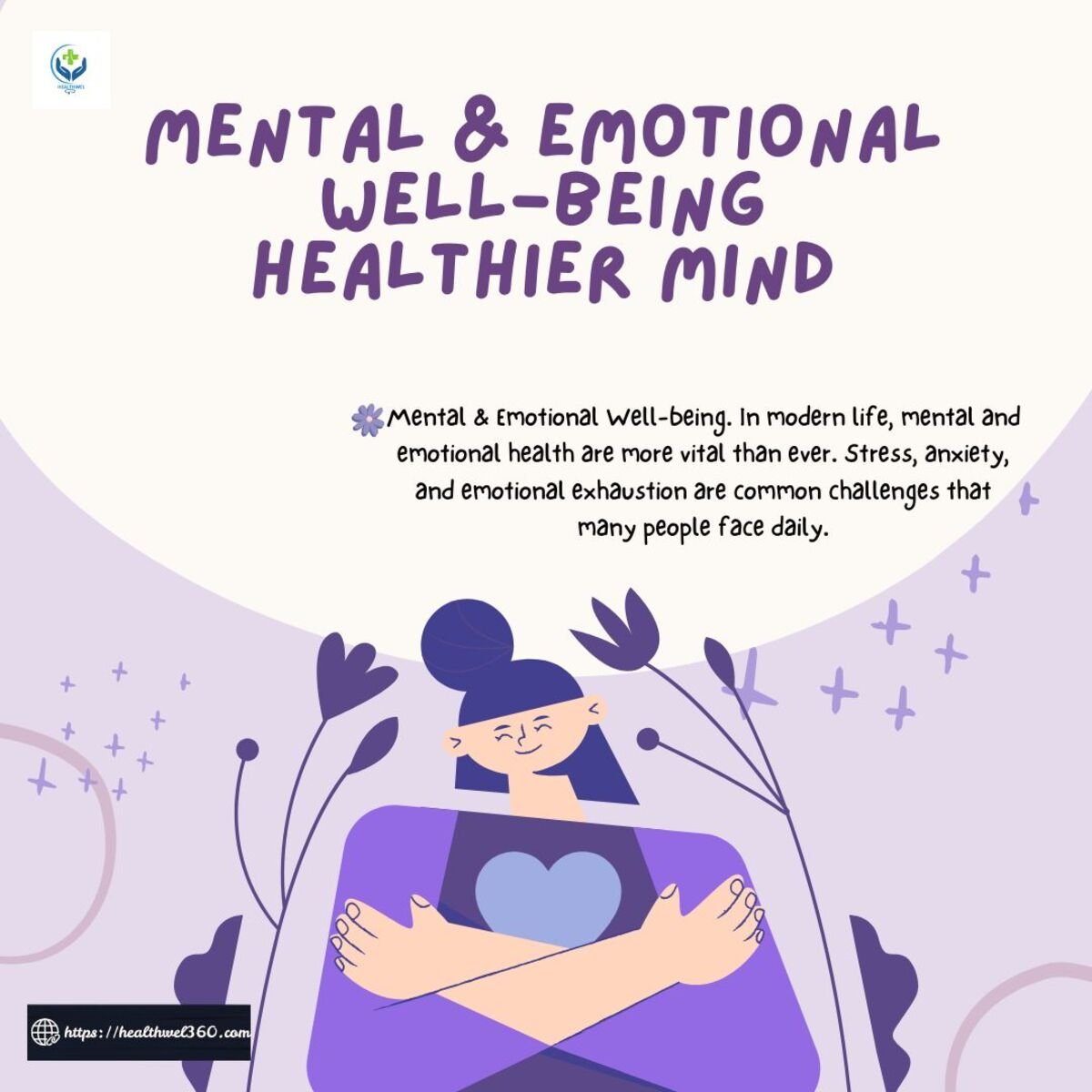Mental & Emotional Well-being. In modern life, mental and emotional health are more vital than ever. Stress, anxiety, and emotional exhaustion are common challenges that many people face daily. However, by understanding and prioritizing mental health, we can build resilience, improve our quality of life, and foster deeper connections with ourselves and others.
This guide explores the key aspects of mental and emotional well-being, including:
- Understanding Mental & Emotional Well-being
- Common Challenges to Mental Health
- Signs of Poor Mental & Emotional Health
- Strategies for Improving Mental Well-being
- The Role of Relationships & Community
- When to Seek Professional Help
Let’s dive in.
Mental and emotional well-being refers to how we think, feel, and cope with life’s challenges. It influences our:
- Thoughts and Beliefs – How we believe our personalities and the universe.
- Behavior – How we act in response to different situations.
- Relationships – How we connect with others.
Good mental health doesn’t mean being happy all the time—it means having the resilience to navigate life’s ups and downs effectively.
- Common Challenges to Mental Health
- Stress & Burnout
Chronic stress from work, finances, or personal responsibilities can lead to burnout—a state of emotional, physical, and mental exhaustion.
Anxiety & Depression
These are among the most common mental health disorders, affecting millions worldwide. Symptoms may include persistent sadness, excessive worry, fatigue, and loss of interest in activities.
Trauma & Past Experiences
Unresolved trauma from childhood or past events can affect emotional stability and relationships.
Loneliness & Social Isolation
Lack of meaningful connections can lead to feelings of emptiness and depression.
Poor Physical Health
Chronic illnesses, lack of sleep, and poor nutrition can worsen mental health.
Recognizing the warning signs early can help in seeking timely support. Common indicators include:
✔ Persistent sadness or hopelessness
✔ Excessive fear, worry, or anxiety
✔ Extreme mood swings
✔ Withdrawal from social interactions
✔ Difficulty concentrating
✔ Changes in sleep or appetite
✔ Unexplained physical pains (headaches, stomachaches)
✔ Increased irritability or anger
✔ Substance abuse (alcohol, drugs, excessive screen time)
If you or someone you know is experiencing these symptoms, it may be time to take proactive steps toward better mental health.
- Strategies for Improving Mental Well-being
- Practice Self-Care
Self-care is not selfish—it’s essential. Simple habits include:
- Getting 7-9 hours of sleep
- Eating a balanced diet
- Mindfulness & Meditation
Mindfulness helps bring attention to the present moment, reducing stress and anxiety. Try:
- Deep breathing exercises
- Guided meditation apps (Headspace, Calm)
- Journaling to process emotions
Instead of suppressing emotions, try:
- Talking to a trusted friend
- Engaging in creative activities (art, music, writing)
- Set Boundaries
Learn to say no to avoid overcommitment. Protect your energy by:
- Limiting time with toxic people
- Prioritizing tasks to avoid burnout
- Seek Joy & Purpose
- Hobbies (gardening, reading, sports)
- Volunteering (helping others boosts mood)
- The Role of Relationships & Community
Humans are social beings, and strong relationships are vital for emotional health. Ways to nurture connections:
✔ Spend quality time with loved ones
✔ Communicate openly (share feelings without fear)
✔ Join support groups (for shared experiences)
✔ Limit toxic relationships (set boundaries when needed)
A strong support system provides comfort during tough times and enhances overall happiness.
While self-help strategies are beneficial, some situations require professional intervention. Consider therapy or counseling if you:
- Feel overwhelmed for prolonged periods
- Experience suicidal thoughts
- Struggle with uncontrollable anxiety or depression
- Have trauma or PTSD symptoms
Therapists, psychologists, and psychiatrists can provide tools like:
- Cognitive Behavioral Therapy (CBT)
- Medication (if necessary)
- Trauma-informed care
Final Thoughts
By adopting healthy habits, fostering meaningful relationships, and seeking help when needed, we can build resilience and lead fulfilling lives.
Remember: You are not alone. Millions struggle with mental health challenges, and support is always available. Prioritize your well-being—because a healthy mind leads to a happier, more balanced life.

Pingback: Physical Health & Fitness: A Healthier Lifestyle